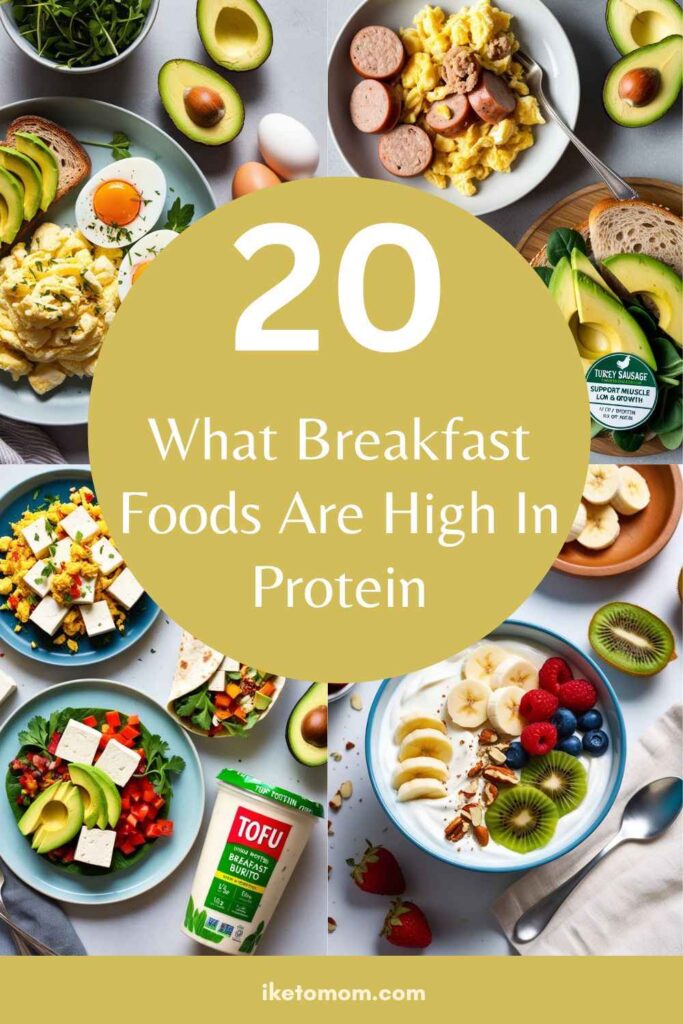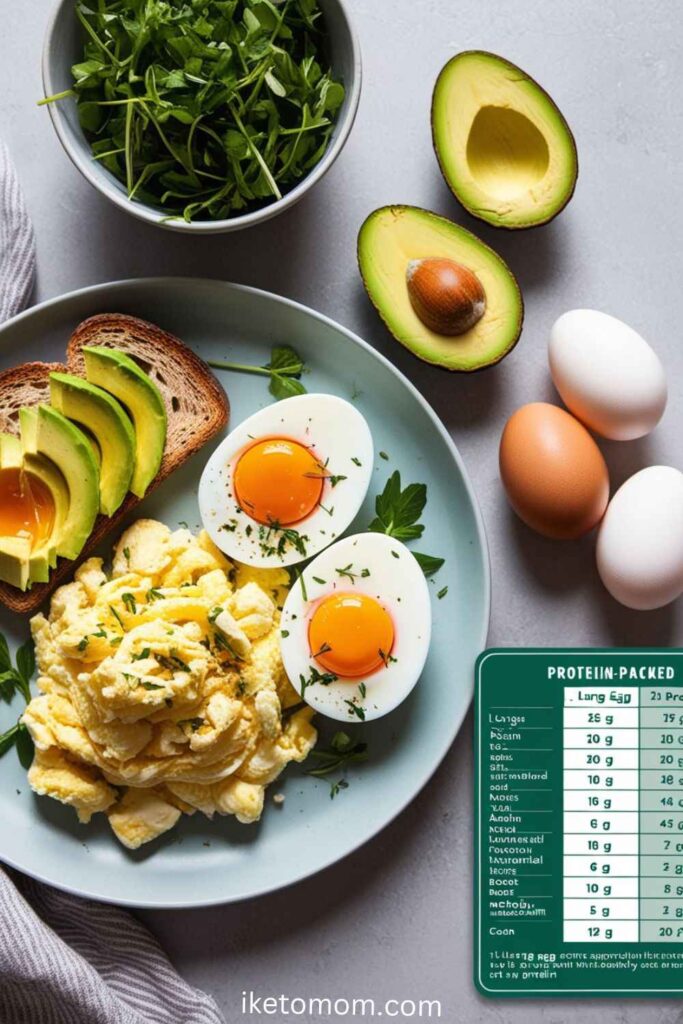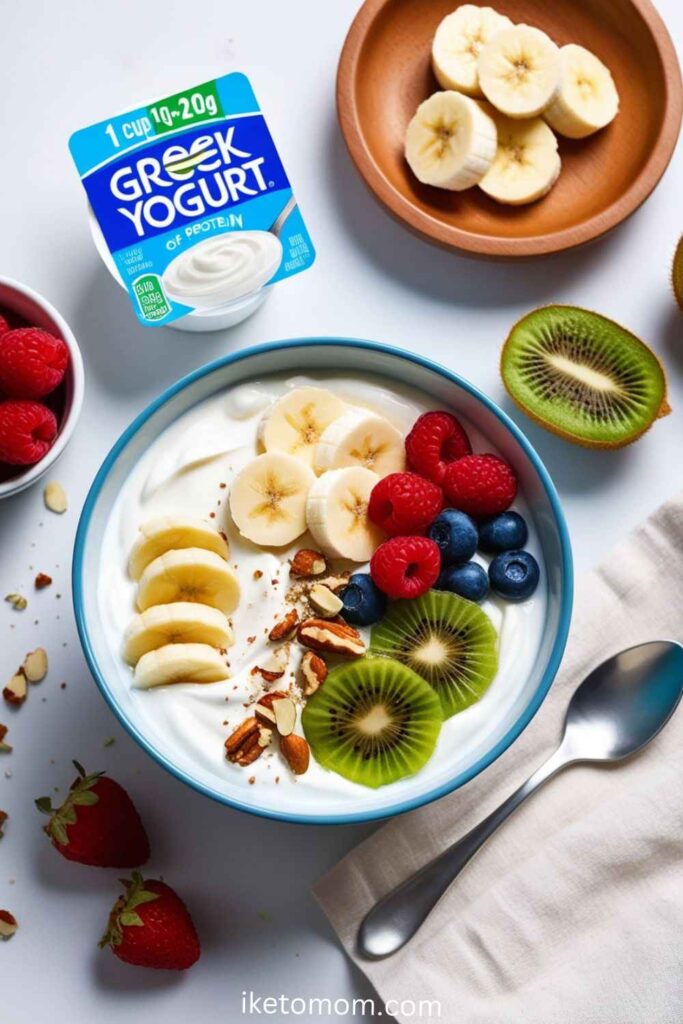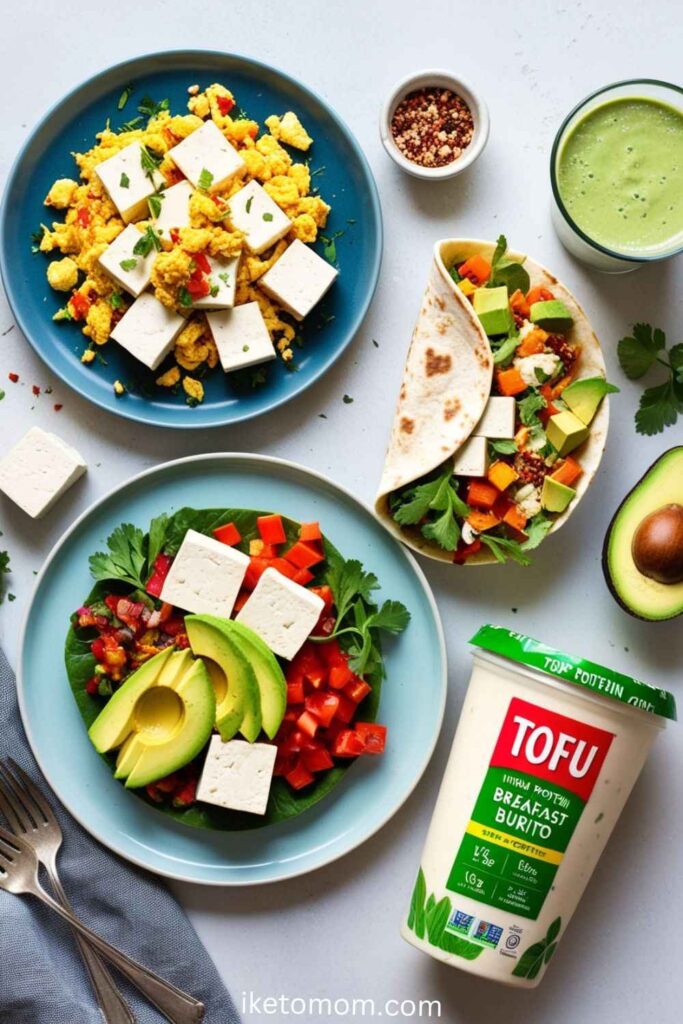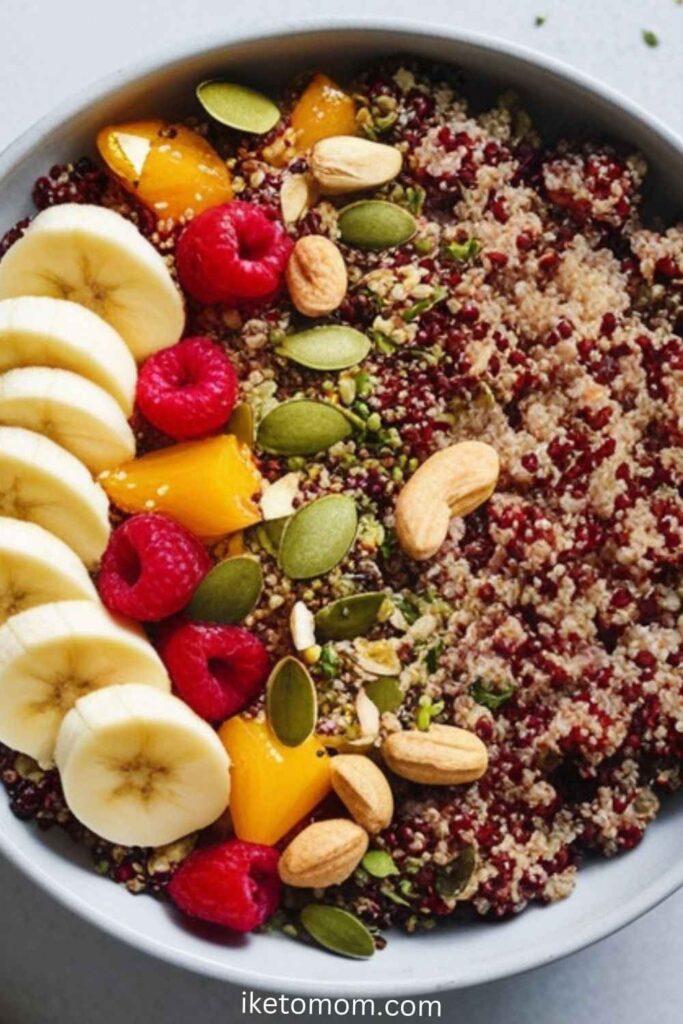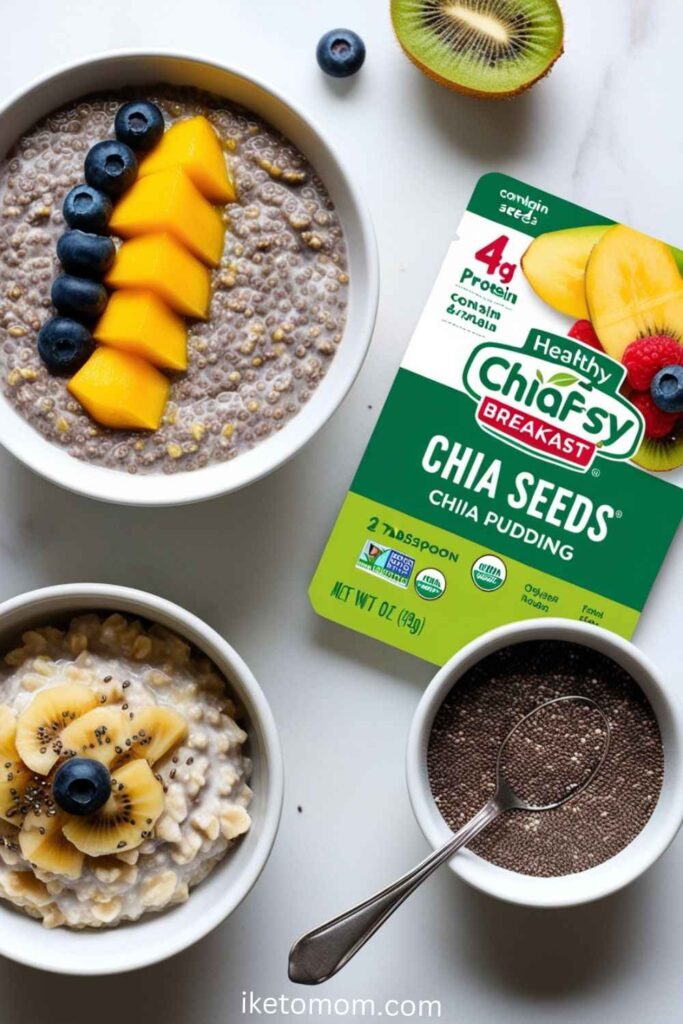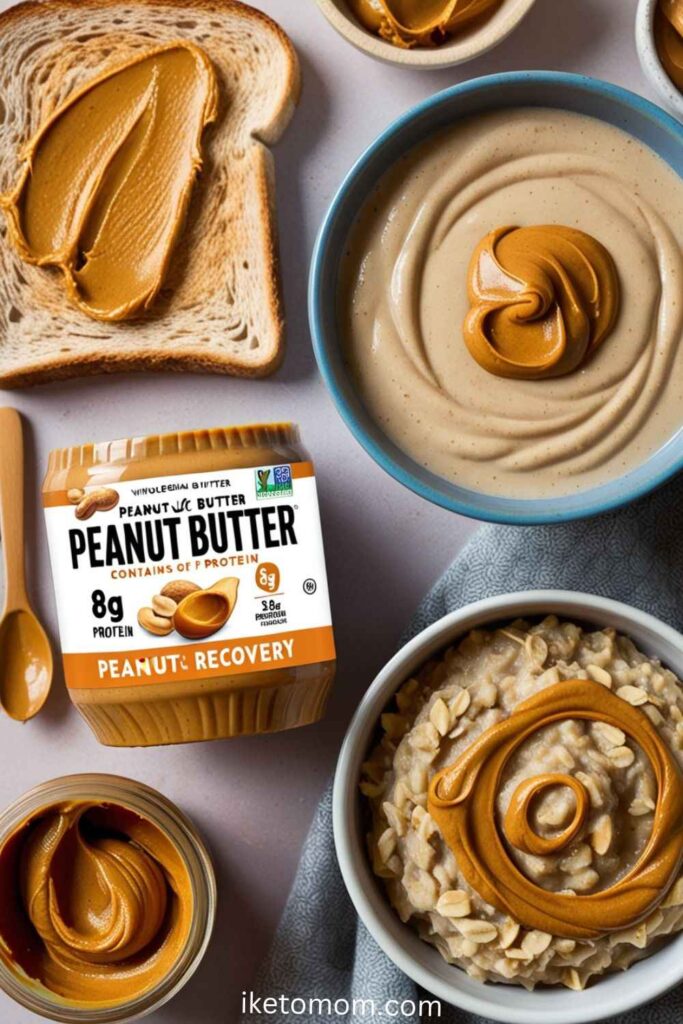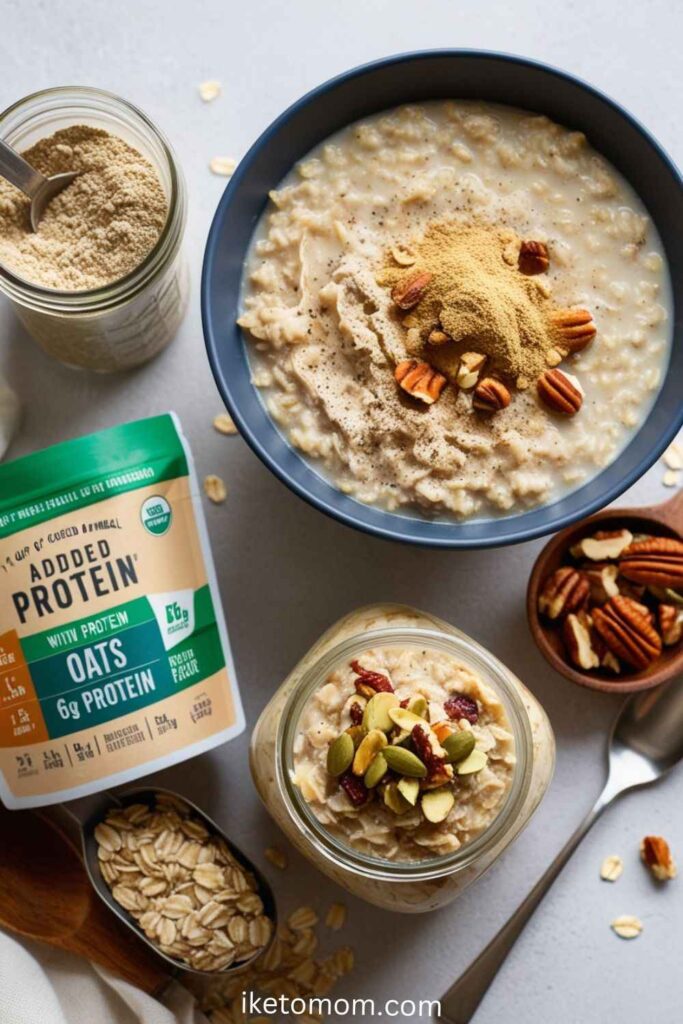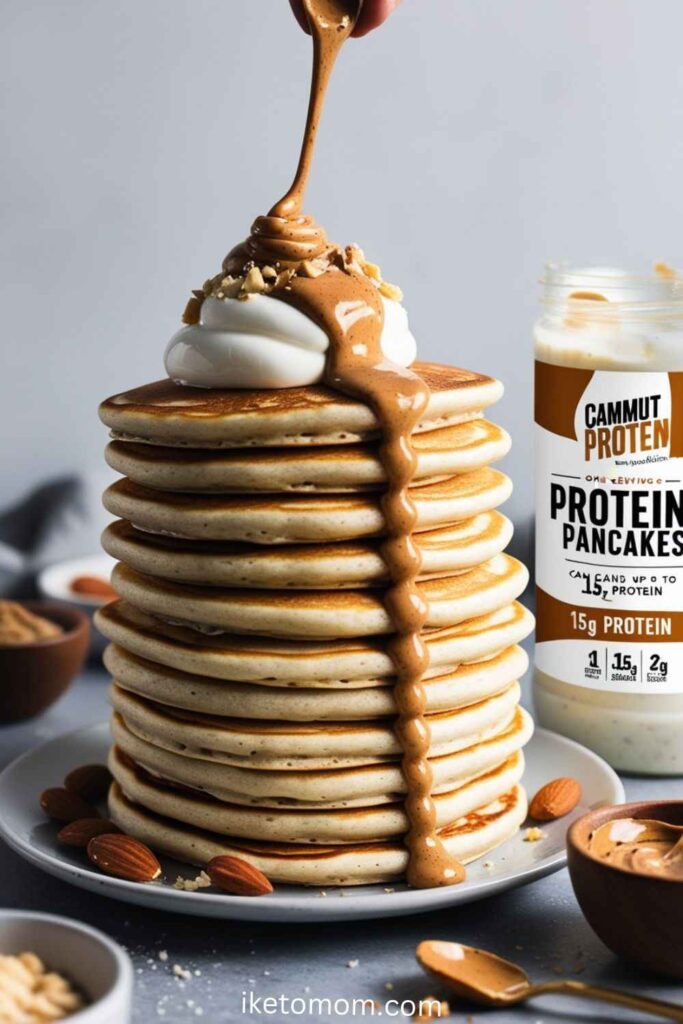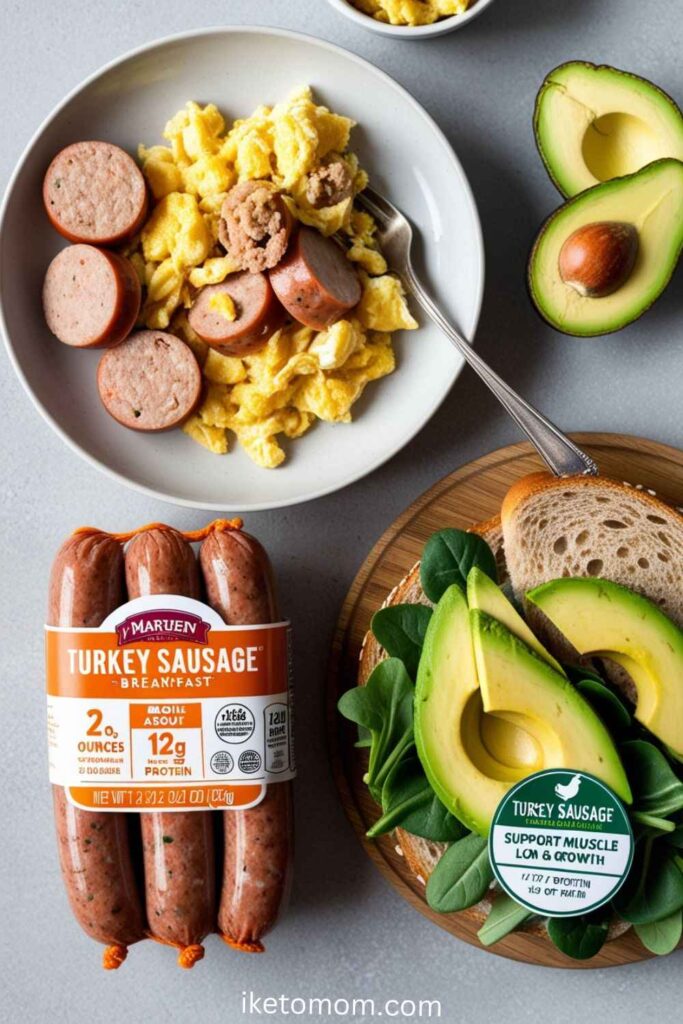What Breakfast Foods Are High In Protein : Protein is an essential macronutrient that plays a vital role in building and repairing tissues, producing enzymes and hormones, and supporting immune function. It is a fundamental component of every cell in the body. Including sufficient protein in your diet is crucial for maintaining good health, and it becomes even more important when consumed at breakfast.
In a well-rounded diet, protein helps ensure the proper function of muscles, bones, and other vital systems. It is involved in muscle repair, immune defense, and maintaining a healthy metabolism. Unlike fats and carbohydrates, protein is not stored in the body, which makes it necessary to regularly consume it through food sources.
What Breakfast Foods Are High In Protein
1. Eggs
Nutritional Information:
One large egg contains approximately 6 grams of protein, along with other essential nutrients such as vitamins A, D, and B12, as well as folate and choline. Eggs are a complete protein source, meaning they contain all nine essential amino acids that the body cannot produce on its own.
Health Benefits:
Eggs are an excellent source of high-quality protein, making them ideal for muscle repair and growth. They support overall muscle health and are particularly beneficial when included in a balanced breakfast. In addition to protein, eggs are rich in essential amino acids, which are crucial for building and repairing tissues. They also help to boost metabolism, as the body expends more energy to digest protein compared to fats and carbohydrates, helping with weight management. Furthermore, the healthy fats in eggs contribute to brain function and hormone regulation.
Ways to Include:
Eggs are incredibly versatile and can be included in a variety of breakfast dishes:
- Scrambled: Lightly beat eggs and cook them in a pan with a little butter or oil for a creamy, protein-packed breakfast.
- Poached: Gently cook eggs in simmering water for a soft, tender texture. This is a great option for those looking for a low-fat, healthy breakfast.
- Boiled: Hard-boiled eggs are an easy and portable option. You can make them ahead of time and enjoy them on their own or sliced over salads or in sandwiches.
By incorporating eggs into your breakfast, you can enjoy a nutritious and protein-rich start to your day.
2. Greek Yogurt
Nutritional Information:
One cup of plain Greek yogurt contains between 10 to 20 grams of protein, depending on the brand and type. It is also an excellent source of calcium, potassium, and other important vitamins, while being lower in sugar compared to traditional yogurt.
Health Benefits:
Greek yogurt is not only a great source of protein but also promotes gut health. It is rich in probiotics, beneficial bacteria that help maintain a healthy balance in the digestive system. These probiotics support digestion, boost the immune system, and may even improve mental health. Additionally, the protein in Greek yogurt helps with muscle repair and growth, while the calcium supports strong bones and teeth. The combination of protein and probiotics makes Greek yogurt an ideal choice for a nutritious and well-rounded breakfast.
Ways to Include:
Greek yogurt is incredibly versatile and can be enjoyed in many different ways:
- Topped with Fruit: Add a variety of fresh fruits such as berries, bananas, or kiwi for added vitamins, fiber, and natural sweetness.
- With Nuts: Top with almonds, walnuts, or granola to add healthy fats, crunch, and extra protein.
- In a Smoothie: Blend Greek yogurt with fruits, vegetables, and other ingredients like spinach or flax seeds for a creamy and protein-packed smoothie.
Including Greek yogurt in your breakfast can provide a satisfying and nourishing meal that supports digestion, muscle health, and overall wellness.
3. Cottage Cheese
Nutritional Information:
Half a cup of low-fat cottage cheese contains approximately 14 grams of protein, making it a rich source of this essential nutrient. It is also low in fat and provides a good amount of calcium, phosphorus, and B vitamins, which are important for bone health and energy metabolism.
Health Benefits:
Cottage cheese is an excellent source of casein protein, a slow-digesting protein that provides a steady release of amino acids into the bloodstream over several hours. This makes it ideal for muscle repair and recovery, especially when consumed before bed. The slow digestion of casein helps keep you feeling fuller for longer, making it a great option for weight management. Additionally, cottage cheese supports bone health with its high calcium content, while also providing a good balance of macronutrients for overall health.
Ways to Include:
Cottage cheese is versatile and can be included in various breakfast dishes:
- Eat Plain: Enjoy it as is for a quick and simple high-protein snack or breakfast.
- With Fruit: Pair with fresh fruit like berries, pineapple, or peaches for a sweet and nutritious combination.
- In Savory Dishes: Use cottage cheese as a topping for savory items like toast, or mix it into a vegetable salad or wrap for a more filling breakfast option.
By incorporating cottage cheese into your morning routine, you can enjoy a protein-packed meal that supports muscle recovery and helps you stay satisfied throughout the day.
4. Tofu
Nutritional Information:
Half a cup of firm tofu contains approximately 10 grams of protein, making it a solid source of plant-based protein. Tofu is also rich in iron, calcium (in calcium-set varieties), and magnesium, contributing to overall health and well-being.
Health Benefits:
Tofu is a plant-based protein that supports heart health by being low in saturated fat and cholesterol-free. It contains isoflavones, plant compounds that may help reduce the risk of heart disease and promote healthy blood vessels. Additionally, tofu is a good source of all nine essential amino acids, making it a complete protein source for vegetarians and vegans. Tofu’s high magnesium and calcium content also support bone health and help regulate muscle and nerve function.
Ways to Include:
Tofu is incredibly versatile and can be used in a variety of breakfast dishes:
- Scrambled Tofu: Crumble tofu and cook it with spices and vegetables for a savory, plant-based alternative to scrambled eggs.
- Tofu Smoothie: Blend silken tofu into a smoothie for added creaminess and protein without the dairy.
- Tofu-based Breakfast Burrito: Use scrambled tofu as a filling for a breakfast burrito, adding vegetables, avocado, and a sprinkle of nutritional yeast for extra flavor.
Tofu is a great addition to a high-protein breakfast, offering a heart-healthy and satisfying meal that aligns with a plant-based lifestyle.
5. Quinoa
Nutritional Information:
One cup of cooked quinoa contains approximately 8 grams of protein, along with a balanced profile of carbohydrates and healthy fats. Quinoa is also rich in vitamins and minerals such as magnesium, potassium, and iron, making it a nutrient-dense option.
Health Benefits:
Quinoa is considered a complete protein, meaning it contains all nine essential amino acids that the body cannot produce on its own. This makes it an excellent choice for vegetarians and vegans seeking high-quality protein. Additionally, quinoa is high in fiber, which aids in digestion, supports heart health, and helps maintain stable blood sugar levels. It is also packed with antioxidants that help fight inflammation and protect against chronic diseases.
Ways to Include:
Quinoa is versatile and can be incorporated into a variety of breakfast dishes:
- Quinoa Porridge: Cook quinoa with almond milk or water to create a warm, hearty porridge, and top it with your favorite fruits, nuts, or a drizzle of honey.
- Quinoa Breakfast Bowl: Combine quinoa with fresh fruit, nuts, and seeds for a protein-packed, antioxidant-rich breakfast bowl.
Including quinoa in your breakfast provides a nutrient-dense, fiber-rich meal that supports muscle health, digestion, and overall well-being.
6. Chia Seeds
Nutritional Information:
Two tablespoons of chia seeds contain approximately 4 grams of protein. These tiny seeds are also an excellent source of fiber, healthy fats, and essential minerals like calcium, magnesium, and phosphorus.
Health Benefits:
Chia seeds are particularly known for their high content of omega-3 fatty acids, which are essential for brain health, reducing inflammation, and supporting heart health. The fiber in chia seeds aids in digestion, promotes gut health, and helps maintain regular bowel movements. Additionally, chia seeds are rich in antioxidants, which help protect the body from oxidative stress and inflammation.
Ways to Include:
Chia seeds are versatile and easy to add to your breakfast:
- Chia Pudding: Mix chia seeds with milk (dairy or plant-based) and let them soak overnight to create a thick, creamy pudding. Top with fruits, nuts, or a drizzle of honey.
- Sprinkled on Oatmeal or Yogurt: Add chia seeds to your oatmeal or yogurt for an extra boost of protein, fiber, and healthy fats.
Incorporating chia seeds into your breakfast provides a nutrient-packed, heart-healthy, and digestion-friendly option to kickstart your day.
7. Peanut Butter
Nutritional Information:
Two tablespoons of peanut butter contain approximately 8 grams of protein, along with healthy fats, fiber, and essential vitamins such as vitamin E and B6. It also provides a good source of magnesium, which supports muscle function and energy production.
Health Benefits:
Peanut butter is rich in monounsaturated fats, which are heart-healthy fats that help reduce bad cholesterol levels and lower the risk of heart disease. The protein and healthy fats in peanut butter also support muscle recovery, making it an ideal option post-workout or as part of a balanced breakfast. Additionally, peanut butter provides a steady release of energy and promotes satiety, helping to curb hunger and prevent overeating throughout the day.
Ways to Include:
Peanut butter is versatile and can be incorporated into many breakfast dishes:
- Spread on Whole Grain Toast: Enjoy peanut butter on whole grain toast for a satisfying, protein-rich breakfast.
- In Smoothies: Add peanut butter to smoothies for extra creaminess and protein.
- On Oatmeal: Swirl peanut butter into your morning oatmeal for added protein and healthy fats.
Incorporating peanut butter into your breakfast is a delicious and nutritious way to start your day with a boost of protein and healthy fats.
8. Oats (with added protein)
Nutritional Information:
One cup of cooked oatmeal contains about 6 grams of protein, along with a good amount of fiber, vitamins, and minerals. When combined with protein-rich ingredients, oats can become an even more powerful breakfast option.
Health Benefits:
Oats are known for their high fiber content, particularly beta-glucan, which helps reduce cholesterol levels, support heart health, and improve blood sugar control. The fiber also aids in digestion and promotes feelings of fullness, helping to regulate appetite and support weight management. Oats are naturally gluten-free and provide a steady, slow-digesting source of energy, making them a great choice for a balanced breakfast.
Ways to Include:
Oats are incredibly versatile and can be easily customized for a high-protein breakfast:
- Protein Oatmeal: Add protein powder to your oatmeal for an extra protein boost, or stir in Greek yogurt for added creaminess and protein.
- Overnight Oats: Prepare overnight oats with your choice of liquid and protein powder, then top with nuts, seeds, or fruit in the morning for a nutritious, protein-packed meal.
By incorporating protein into your oats, you can enjoy a hearty, heart-healthy, and filling breakfast that supports muscle recovery and overall well-being.
9. Protein Pancakes
Nutritional Information:
One serving of protein pancakes can contain up to 15 grams of protein, depending on the ingredients used. The protein content varies based on whether you add protein powder, eggs, Greek yogurt, or other high-protein ingredients to the batter.
Health Benefits:
Protein pancakes are a highly customizable breakfast option that can be tailored to suit your protein needs. By adding protein powder, eggs, or Greek yogurt, you can boost the protein content while still enjoying a delicious, hearty meal. These pancakes are rich in high-quality protein, which helps in muscle recovery and maintenance. They also provide a balanced combination of macronutrients, supporting energy levels throughout the morning and promoting satiety.
Ways to Include:
Protein pancakes can be enjoyed in various ways:
- Top with Nut Butter: Add almond or peanut butter on top of your pancakes to boost the protein content and provide healthy fats.
- With Greek Yogurt: Serve protein pancakes with a dollop of Greek yogurt for added creaminess and extra protein.
Protein pancakes are a tasty and nutritious way to enjoy a protein-packed breakfast while also satisfying your morning cravings.
10. Lean Meats (Turkey or Chicken Sausages)
Nutritional Information:
Two ounces of turkey sausage contain approximately 12 grams of protein. Lean meats like turkey and chicken sausages are also low in fat, making them an excellent choice for a high-protein, low-fat breakfast.
Health Benefits:
Lean meats like turkey and chicken are great sources of high-quality protein, which supports muscle growth and repair. These meats are low in fat, particularly saturated fat, making them heart-healthy options that help maintain a healthy weight. They are also rich in essential vitamins and minerals, such as iron, zinc, and B vitamins, which are important for energy metabolism and immune function.
Ways to Include:
Lean meats can be incorporated into breakfast in various ways:
- In an Egg Scramble: Add cooked turkey or chicken sausage to an egg scramble for a protein-packed meal.
- Breakfast Sandwiches: Use turkey or chicken sausage as a filling for a breakfast sandwich, paired with whole-grain bread, avocado, and greens.
- With Avocado: Serve turkey or chicken sausage alongside avocado for a nutrient-dense, heart-healthy breakfast.
Including lean meats in your breakfast provides a flavorful and protein-rich option that supports muscle health and helps you stay full throughout the morning.
FAQ

I’m Priscilla Swahn, a registered dietitian with a master’s degree in nutritional sciences. With over a decade of experience in holistic nutrition, I specialize in creating delicious keto recipes to help you enjoy a healthy lifestyle. On iKetoMom, you’ll find a variety of recipes for every meal—hearty breakfasts, satisfying lunches, mouthwatering dinners, indulgent desserts, and refreshing drinks. My recipes make keto living easy and enjoyable for the whole family. Featured in EatingWell and MindBodyGreen, I also collaborate with health centers and corporate companies to share my expertise. Join me and discover the joy of keto cooking!


